

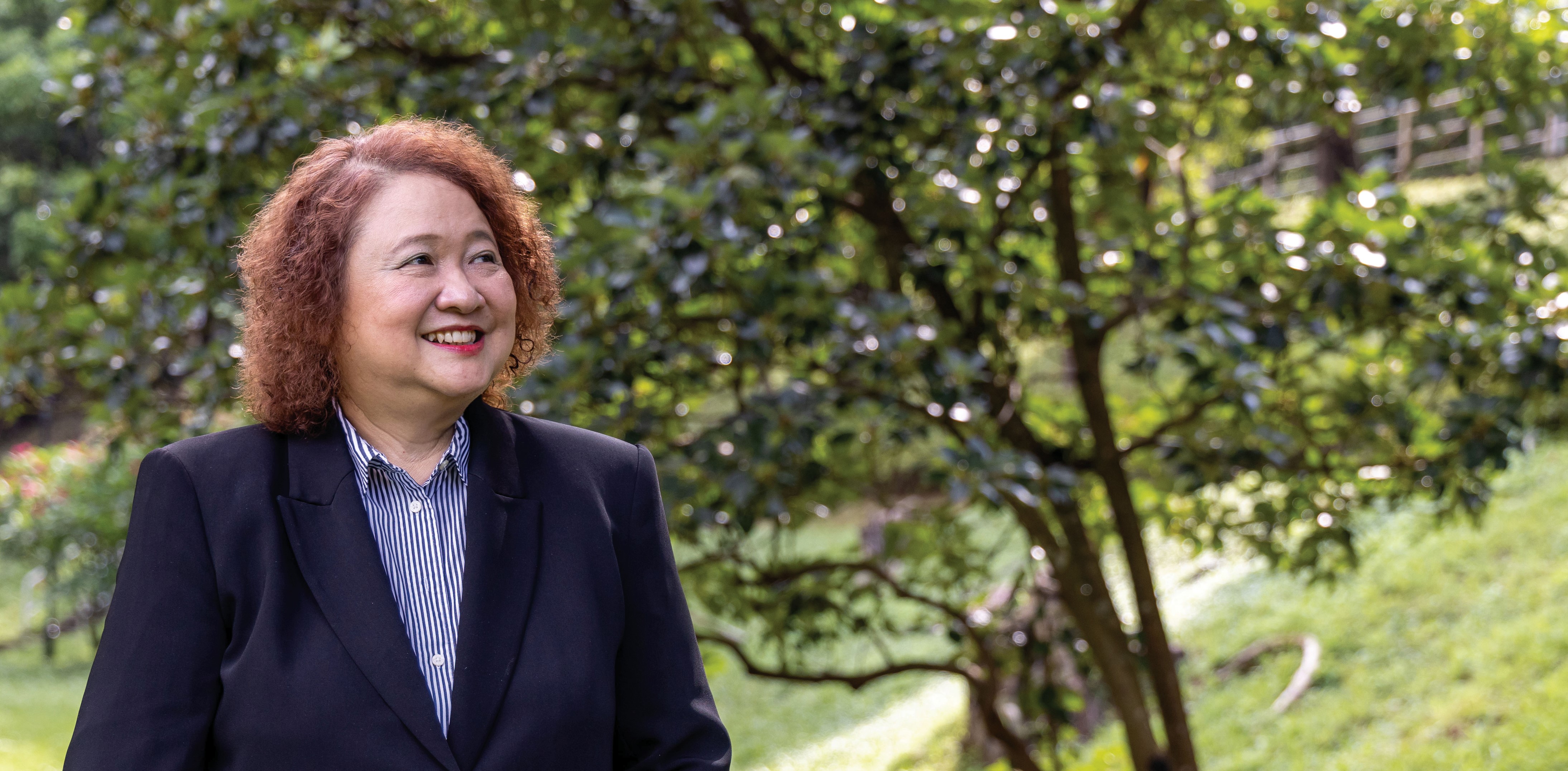
On midsummer days in August, when all Chung Chi students were still enjoying their summer vacation, Professor Kwan Mei Po, New College Head, has been working round the clock with her hectic schedule. Professor Kwan (1985/Geography) pursued her undergraduate studies at Chung Chi. Thereafter she received her Master's degree in Urban Planning from the University of California, Los Angeles, and her Doctor of Philosophy degree in Geography from the University of California, Santa Barbara. Having long been dedicated to geographical science research, Professor Kwan is an internationally acclaimed geographer with remarkable achievements in geographic information science. Today, she is the Director of the Institute of Space and Earth Information Science, Director of the Institute of Future Cities, and Choh-Ming Li Professor of Geography and Resource Management at The Chinese University of Hong Kong (CUHK). From a Chung Chi student to the first female College Head, what has Professor Kwan encountered these years? Her life stories begin with her family and religion...

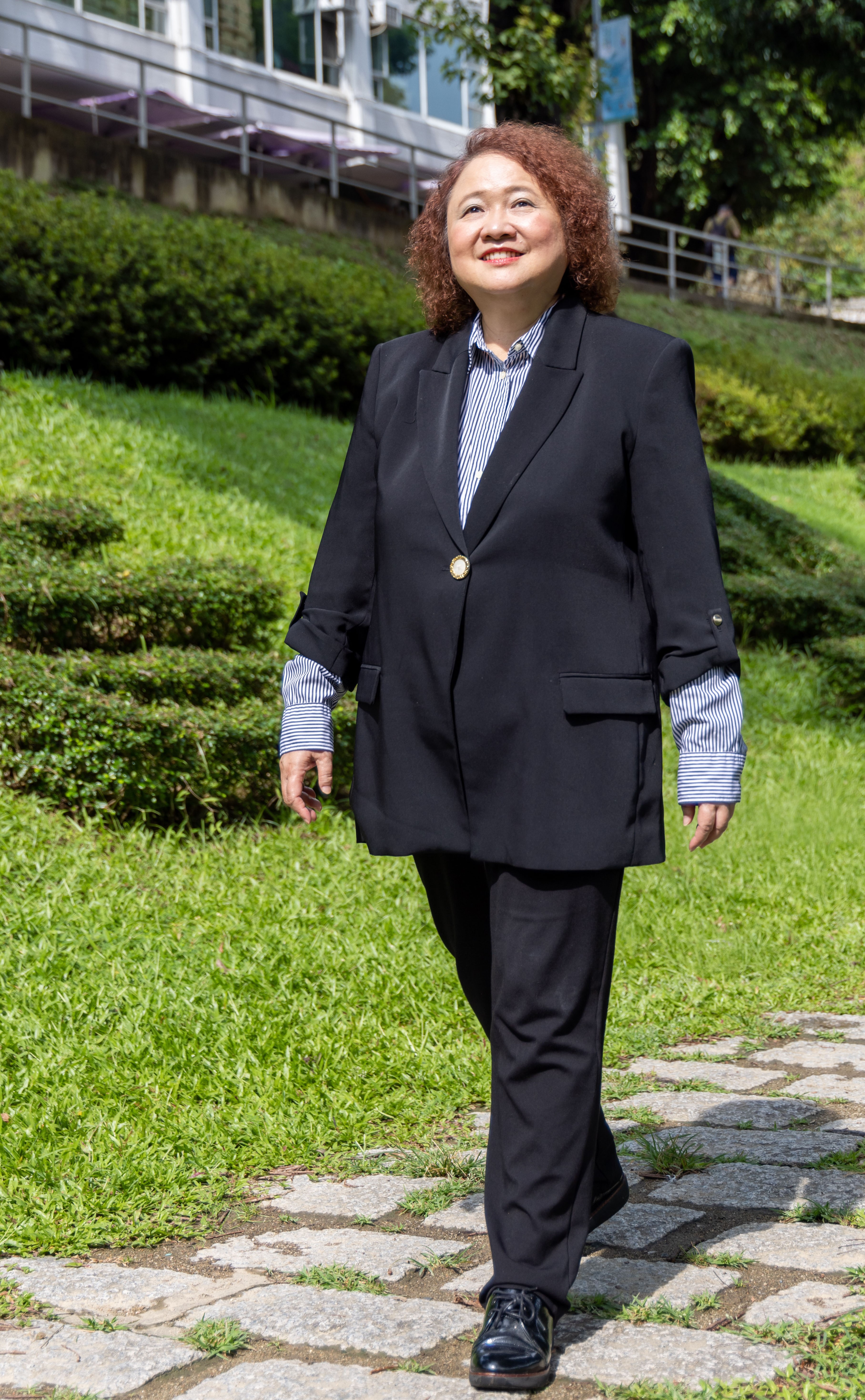
Professor Kwan was born and raised in a grassroots family. Though her father was quick-witted and intelligent, he succumbed to his family's financial burden and joined the workforce at an early age. Despite a humble childhood, Professor Kwan was blessed to live her life with abundance. “Thanks to my parents' infinite love and care, we never have a moment feeling deprived,” said Professor Kwan. Deeply influenced by her mother, who is a devoted Christian, she believes that one should neither focus on oneself nor pursue fame and fortune, “After all, life is short and we are only travellers. Those worldly pursuits will end up vanishing into thin air.” Helping others makes her truly happy, she dedicated considerable time to serving the church in her youth. She endeavours to contribute to society by engaging in something meaningful and valuable.

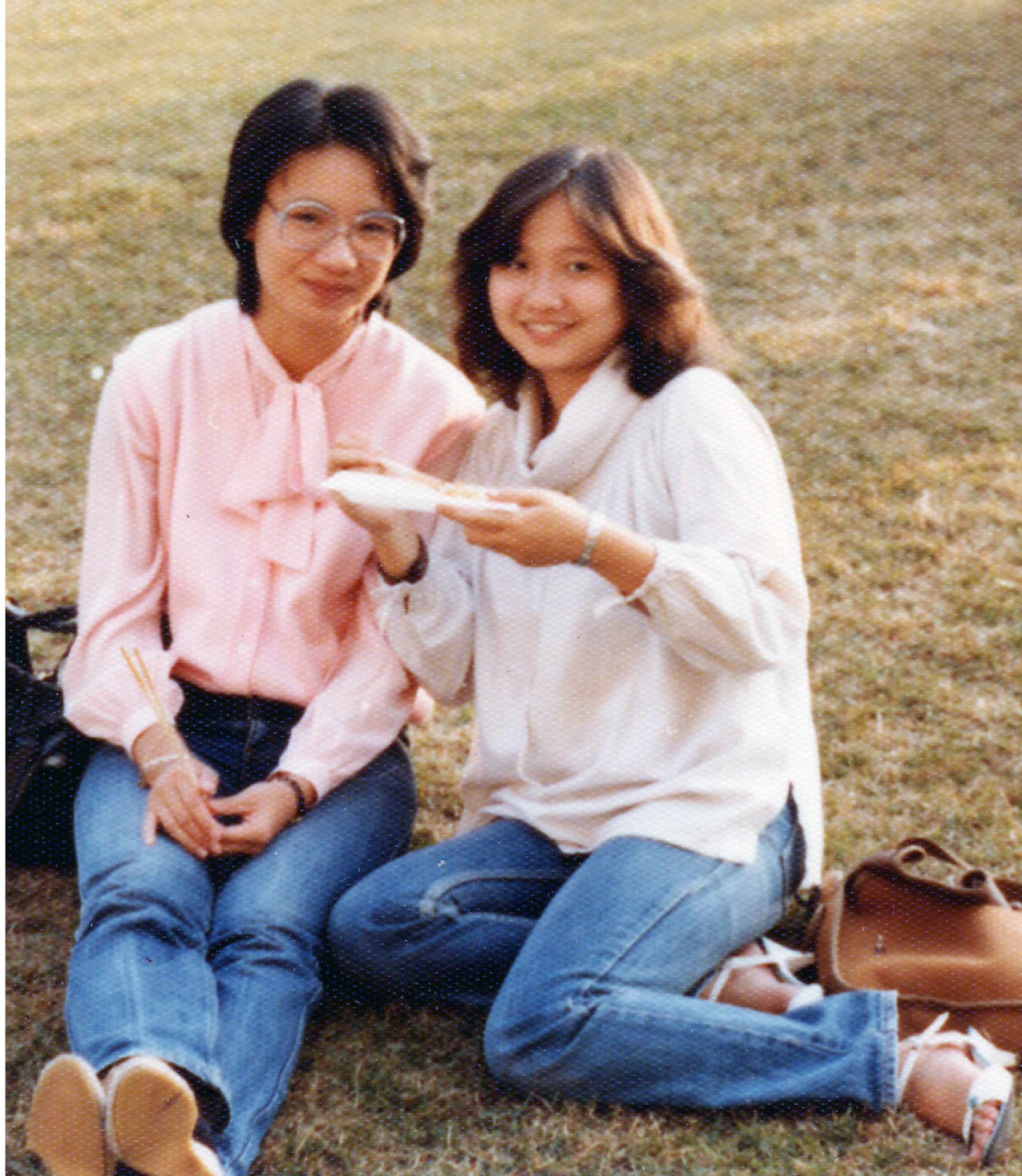
Professor Kwan took snapshots with her parents on the campus when she completed her bachelor's degree programme at CUHK.
When Professor Kwan recalled her days in Chung Chi, she first thought of the aesthetically pleasing landscapes on the campus. At that time, she lived in the Theology Building. The picturesque scenery of little bridges, flowing water, and bubbling streams enabled her to stay composed and focused on her studies, “Such a serene environment generates a rich academic ambience, which had a profound impact on my scholarly exploration in the future.” Besides, Chung Chi's General Education has enhanced her independent thinking capability, from which she benefits throughout her lifetime, “Even though a person is truly remarkable, he/she should have critical thinking capability and sound judgement without blindly following others. Such a belief is highly favourable to academic research and interpersonal relationship.” When it comes to the most unforgettable experience, Professor Kwan said it must be the year when she took part in an exchange programme. Exchange is one of the unique features of Chung Chi. Thanks to the College's support, she had a chance to join the exchange programme at the International Christian University in Tokyo, Japan. She said, “I used to fully count on my parents' love and protection and did not have much understanding of the world. Nevertheless, I learned to be independent while staying abroad. When I was exposed to various cultures, I learned to build interpersonal relationships, appreciate foreign cultures, embrace cultural diversity, as well as cultivate my world views and visions.” This experience immensely broadened her horizons. At first, instead of pursuing research in geography, she preferred other subjects like mathematics, the Chinese language, and social work. However, during her exchange, she came across a renowned professor who was eager to spend three hours every week teaching her economics and geography in English. In addition, she met the head of a research institute and his research team who explained to her the construction and planning of the shores in Japan, which furthered her understanding of and interest in geography.

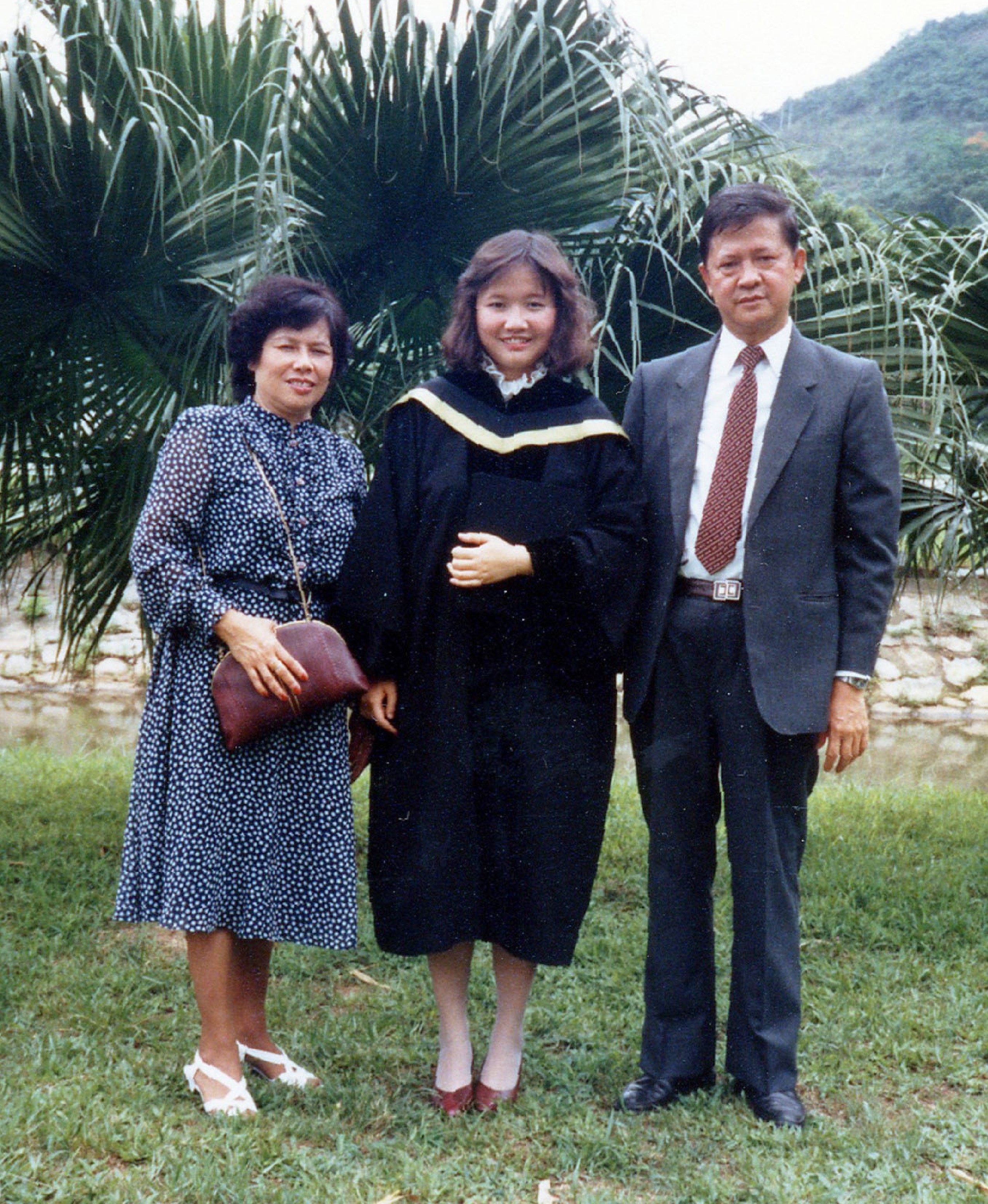
With the College's support during her undergraduate study, Professor Kwan went on an exchange programme and studied at the International Christian University in Tokyo, Japan.
Professor Kwan is keen on tackling challenges by discarding the old and bringing in the new. That’s why she decided to pursue academic research in geography in the United States. She has a broad array of research interests, covering geographic information science, health geography, urban geography, transport geography, and social and behavioural geography, among others. She emphasised, “My research scope is not solely confined to technology and geography, but is also associated with the application of research findings to society for enhancing public wellbeing.” Professor Kwan has a knack for leveraging geospatial technologies to collect personal and environmental real-time data for addressing environmental health, human mobility, and urban and social issues, among others. For example, her recent projects examine the health impacts of individual environmental exposure, such as noise, air pollution, and green space, and the space-time dynamics of the COVID-19 pandemic. Given the serious flooding caused by the rainstorm recently, Professor Kwan and Professor Ma Peifeng led their research team to monitor the flooding situation in the disaster areas by studying the SAR satellite images. The research findings are significant for the investigation of the disaster and the formulation of contingency measures.
Professor Kwan is a capable person in the academic sector. Having said that, it does not imply her career is always going to be all roses and rainbows. She had endured severe hardships since she began her academic career as an Assistant Professor at a university in the United States. At that time, discrimination against women was prevalent in the States. As a woman of colour, she suffered a double disadvantage and encountered even more serious discrimination because most White people did not believe that an Asian woman could be a leader in the academic world. She said frankly that she had faced tremendous pressure and difficulties during those tough moments, “People saw me always smiling and thought that my life was going smoothly. In fact, it is true that things were sometimes fine, but most of the time I strived hard to overcome immense difficulties that called for tremendous perseverance and diligence.” Fortunately, Professor Kwan received considerable encouragement and support from her fellowship and professional networks. She also followed God's guidance and believed all difficulties would be overcome at last. Moreover, Professor Kwan is by no means a timid person who shies away from challenges. She strives to seek solutions whenever she encounters problems. When facing challenges, she is even more diligent and committed to bear a greater workload. She said, “I get up at half past three every morning throughout the whole year. I make use of this quiet moment to ponder over and carry out academic research and handle other tasks.” With a proactive and industrious demeanor, Professor Kwan has reaped fruitful rewards. In the last decade, a myriad of her academic works ranked among the world’s top 1% of most cited articles. According to the list of the World's Top 2% Scientists by Stanford University, Professor Kwan was ranked the world's no. 4 in the field of geography in 2022. Furthermore, according to Research.com's ranking of top scientists by disciplines for 2021, she was ranked the Nation's no. 3 in Social Science and Humanities. What's more, she has brought revolutionary breakthroughs to geography by successfully integrating a myriad of disciplines such as geography, sociology, public health, and transport, leading the academia to undergo a wealth of paradigm shifts. Having garnered numerous accolades, she is internationally acclaimed in the fields of geography and social science. In 2011, she received the Distinguished Scholarship Honors from the American Association of Geographers (AAG), being the first Asian female scholar to receive the honour since the founding of the AAG for over a century. In 2022, she was awarded the James R. Anderson Medal of Honor in Applied Geography from the AAG, becoming the first Chinese to receive this highest honour.
As a highly respected scholar, Professor Kwan not only focuses on academic research, but also attaches great importance to nurturing new generations of students. She has stringent requirements on her students, in the hope that they can surpass themselves and make progress continuously, “I have gone the extra mile to nurture my students, and their benefits are always my first priority, even before my own interests. Some teachers may compete with students for better outcomes, and some will strive for a higher reputation at the expense of students' efforts. As for me, I like helping students to my fullest extent.” During her stay in the United States, she served as a fellowship mentor and helped those undergraduates who had just arrived in the States in various aspects. She said, “We could hardly find a Chinese restaurant in our city. As I am good at cooking, like making Peking duck, I would cook for those newly arrived students who felt lonely and homesick, and invite them to have dinner with me. I hope to make them feel cared for and at home with a hearty meal.”

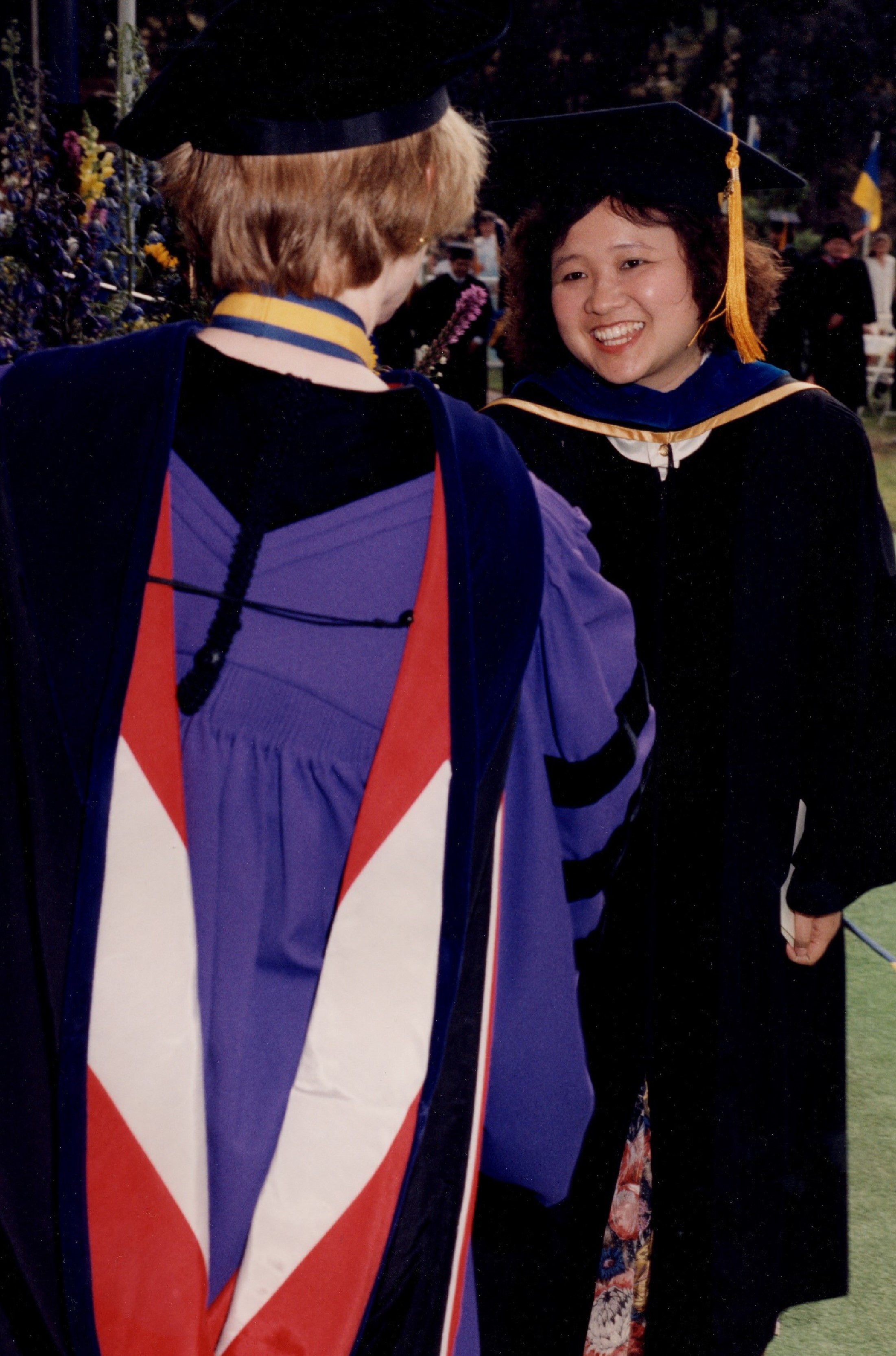
Professor Kwan received Doctor of Philosophy degree in Geography from the University of California, Santa Barbara.
In 2019, Professor Kwan decided to return and contribute to CUHK, her alma mater, as she wanted to take care of her mother. Deeply devoted to Chung Chi, she is more than eager to be a College member without a second thought. When she recognised she was nominated to be a candidate for the next College Head, she felt exceptionally honoured. “The Selection Committee explained why I am qualified to be the next College Head with substantial justification, which has rendered this new role with a fresh and novel perspective.” Professor Kwan holds beliefs and values in high regard and is deeply touched by the Chung Chi apothegm, “Academics and Athletics, Morality and Service, and Spiritual Enhancement”, as advocated by Dr. Norman Chan, Chairperson of the College Board of Trustees. “Cultivating thoughts and value perspectives is utterly significant. We should not merely focus on materialistic pursuits. The apothegm seamlessly integrates the College's mission and spirit. Life is so short. Within my limited lifespan, I hope to do something meaningful. That's why I accepted the nomination.”
On the other hand, Professor Kwan believes that being visionary and innovative in academia lends tremendous support to her contributions to the College. She hopes to lead Chung Chi to develop ambitious missions rather than conforming to conventions. Besides, perseverance is a must for education reform. “Taking up the role of the College Head also entails relentless efforts. Sometimes it's difficult to arrive at a solution. Having said that, I am good at analysing problems by digging into their origins and conducting thorough investigations so as to reach our goals on a step-by-step basis.” On top of it, Professor Kwan stressed that we should always be patient and inclusive. As an eminent leader, she is eager to listen to different voices. She believes in team power and hopes to join hands with the College staff to promote College development cohesively.“ I believe everyone has their own strengths and values. As long as we fully utilise our strengths, we can realise more ambitious goals.”

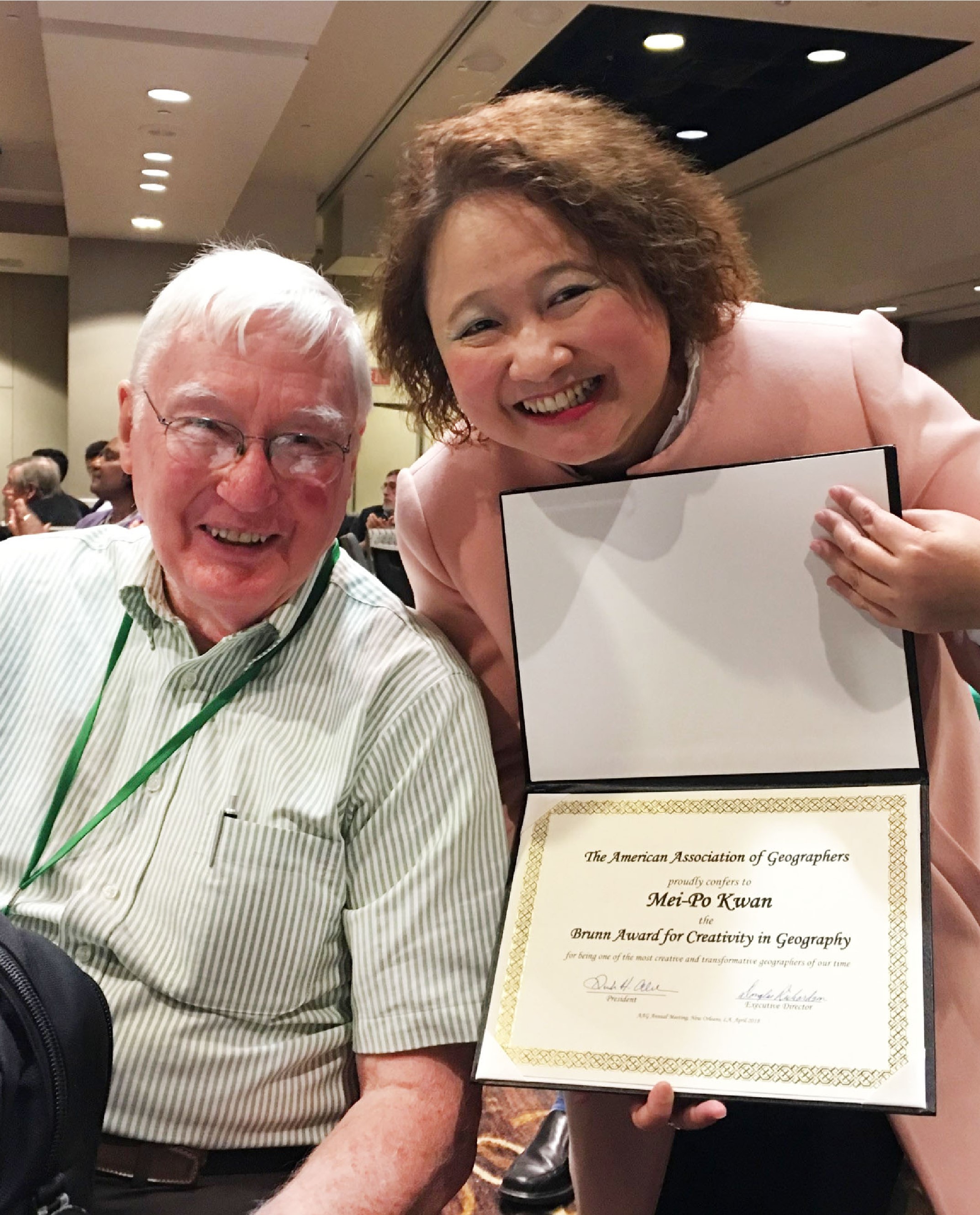
Professor Kwan received the Stanley Brunn Award for Creativity in Geography from the American Association of Geographers in 2018.
As Head of Chung Chi, Professor Kwan is dedicated to elevating College development to the next level. She is looking forward to nurturing more outstanding students and scholars, inspiring them with the Christian spirit as implied in Chung Chi's education philosophy, and proactively advocating the concept of values including equality, justice, inclusion, and peace. Furthermore, Professor Kwan is highly concerned about gender equality and hopes to raise public awareness of it with the support of the College. She also keeps an eye on the cultural differences among students. Even though the University is exceptionally globalised, there is still a gap between local and overseas students. She hopes to foster their harmonious interactions so that they can get to know one another and have a deeper mutual understanding. She also aspires to create a better campus environment, as well as to embrace talents from various countries and of diverse nationalities, enabling every student to grow vigorously at Chung Chi and make immense contributions to society.
Last but not least, Professor Kwan especially quoted the 17 Sustainable Development Goals of the United Nations, many of which are closely associated with human welfare. She has observed many people suffering from mental health issues, and students facing tremendous difficulties in economic, family, and academic matters after the pandemic. She expects the College to be more considerate in catering to students' needs and provide assistance as far as possible. She emphasised, “Chung Chi will endeavour to address student wellness, be it the psychological, mental, social, or spiritual aspect. Spirituality is particularly indispensable in the College, which makes Chung Chi unique and unparalleled and sets a role model for other universities. Nevertheless, given the large number of Chung Chi students today, the biggest challenge of the College is that we have to enhance mutual trust, understanding, and commitment among ourselves. I earnestly hope that we can join hands to explore the essence of inheriting the legacy of Chung Chi's mission.” Let's address Professor Kwan's appeal wholeheartedly and make cohesive efforts to pursue excellence.

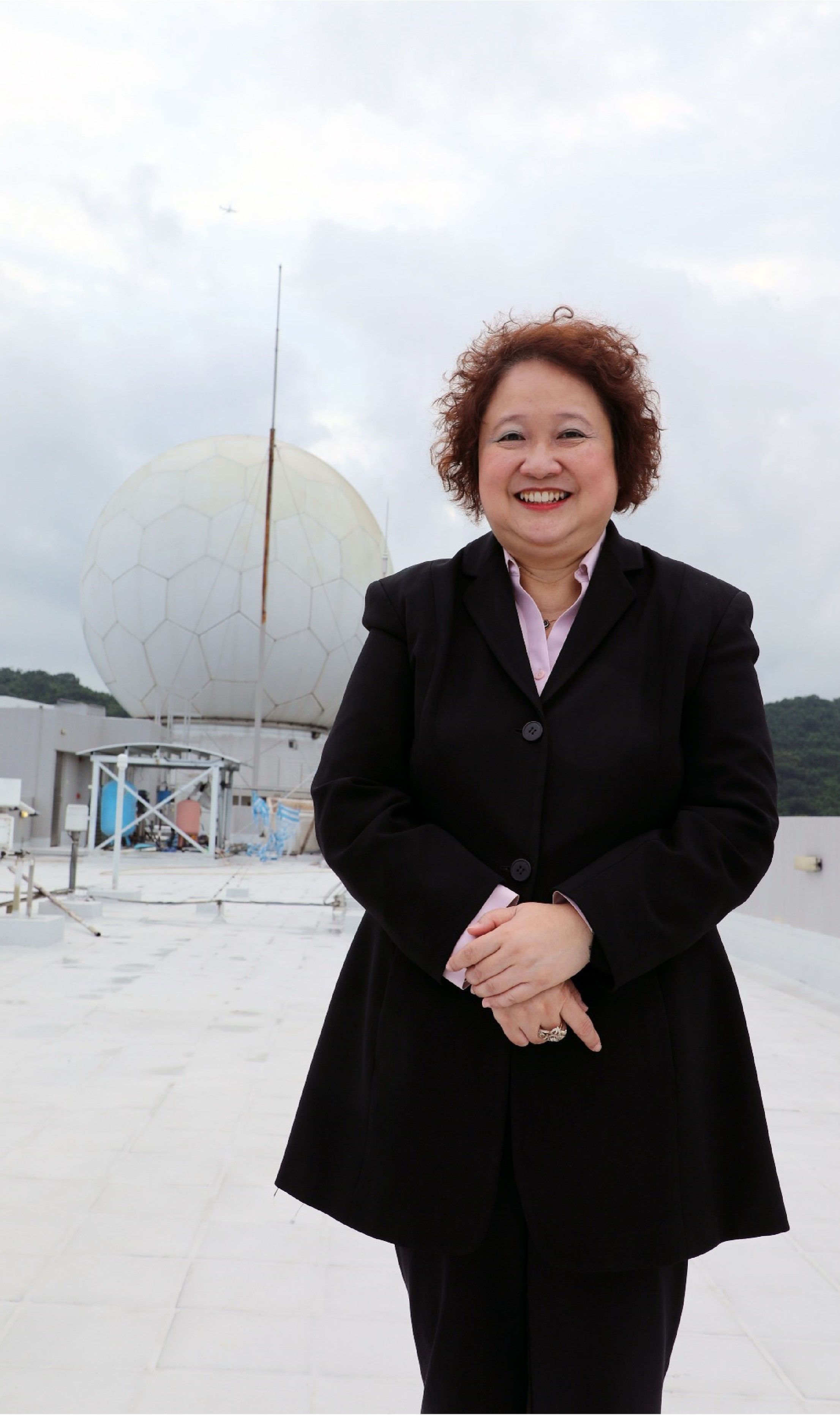
In 2019, Professor Kwan decided to return to CUHK, her alma mater, to serve as the Director of the Institute of Space and Earth Information Science.